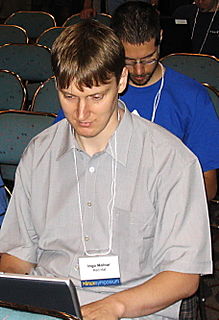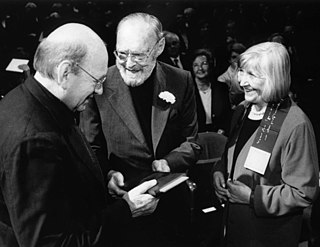A Quote by Byron Katie
The Work is four questions and a turnaround. The Work is a way to identify and question the thoughts that cause all the suffering and violence in the world. The Work is a very, very simple process. It's for anyone who can answer a question that is willing to. It takes a bit of willingness and an open mind.
Related Quotes
To be a scientist you have to be willing to live with uncertainty for a long time. Research scientists begin with a question and they take a decade or two to find an answer. Then the answer they get may not even answer the question they thought it would. You have to have a supple enough mind to be open to the possibility that the answer sometimes precedes the question itself.
The first time I had work in a public space it felt very strange to see people that I didn't know looking and, and presumably commenting on, my work. Nowadays, I'm a bit more fatalistic - they either like the work or they don't and there's not a lot I can do about that. The trick seems to be not to get too pissed on open nights so that I can answer any questions without making a fool of myself. Doesn't always work!
Every once in awhile, find a spot of shade, sit down on the grass or dirt, and ask yourself this question: “Do I respect myself?” A corollary to this question: “Do I respect the work I’m doing?” If the answer to the latter question is NO, then the answer to the former question will probably be NO too. If this is the case, wait a few weeks, then ask yourself the same two questions. If the answers are still NO, quit.
Papers should include more side remarks, open questions, and such. Very often, these are more interesting than the theorems actually proved. Alas, most people are afraid to admit that they don't know the answer to some question, and as a consequence they refrain from mentioning the question, even if it is a very natural one. What a pity! As for myself, I enjoy saying 'I do not know'.
If you ask a living teacher a question, he will probably answer you. If you are puzzled by what he says, you can save yourself the trouble of thinking by asking him what he means. If, however, you ask a book a question, you must answer it yourself. In this respect a book is like nature or the world. When you question it, it answers you only to the extent that you do the work of thinking an analysis yourself.



































